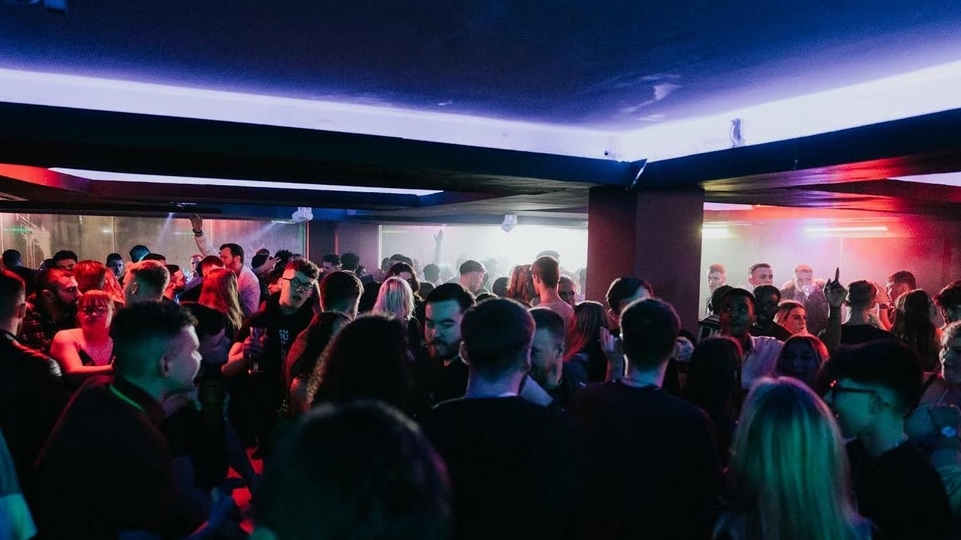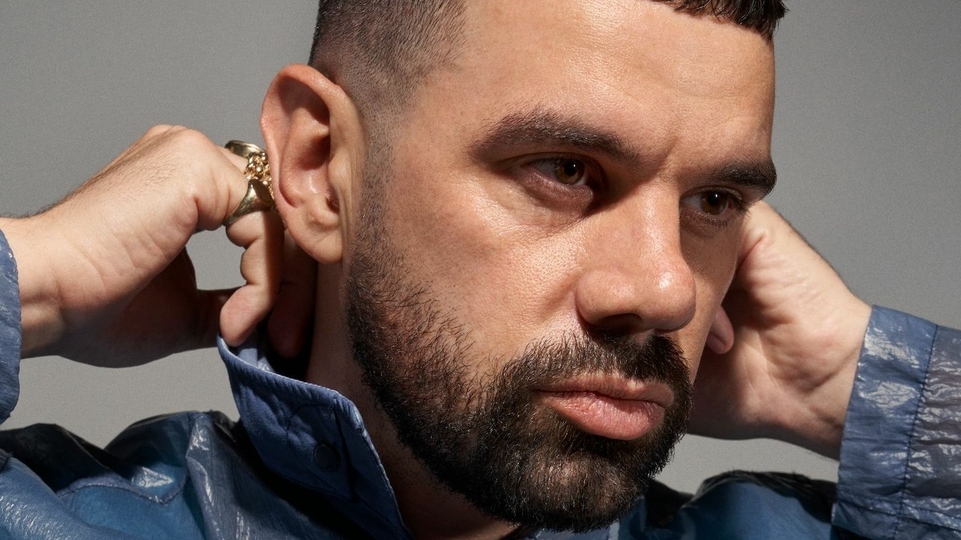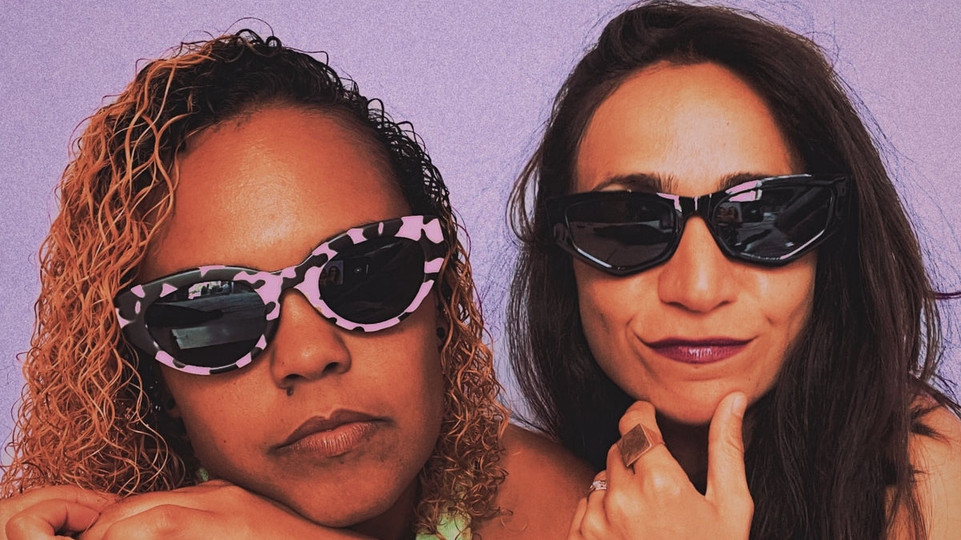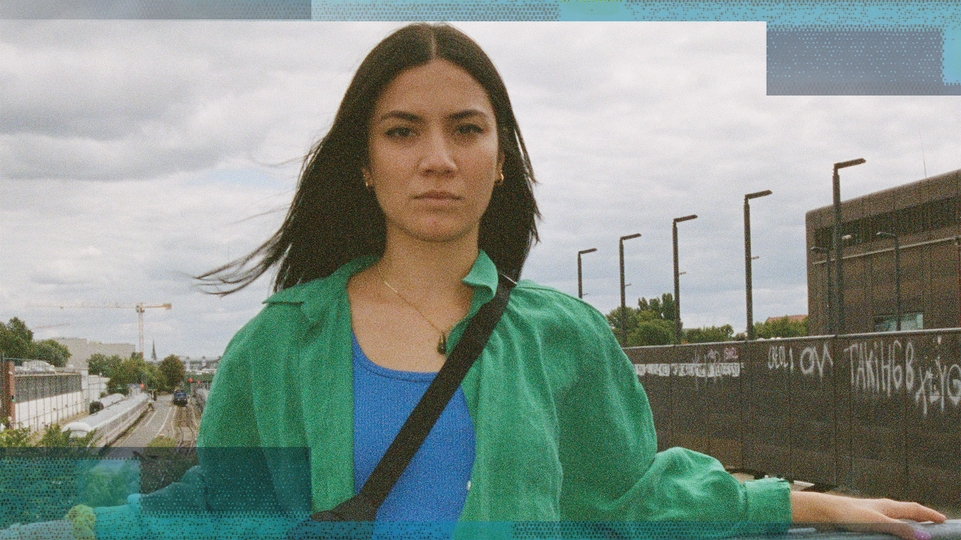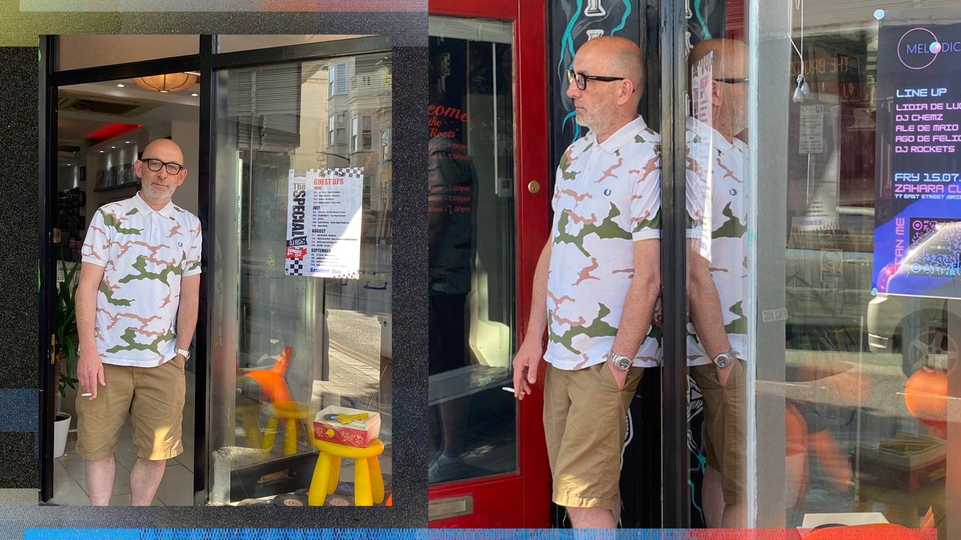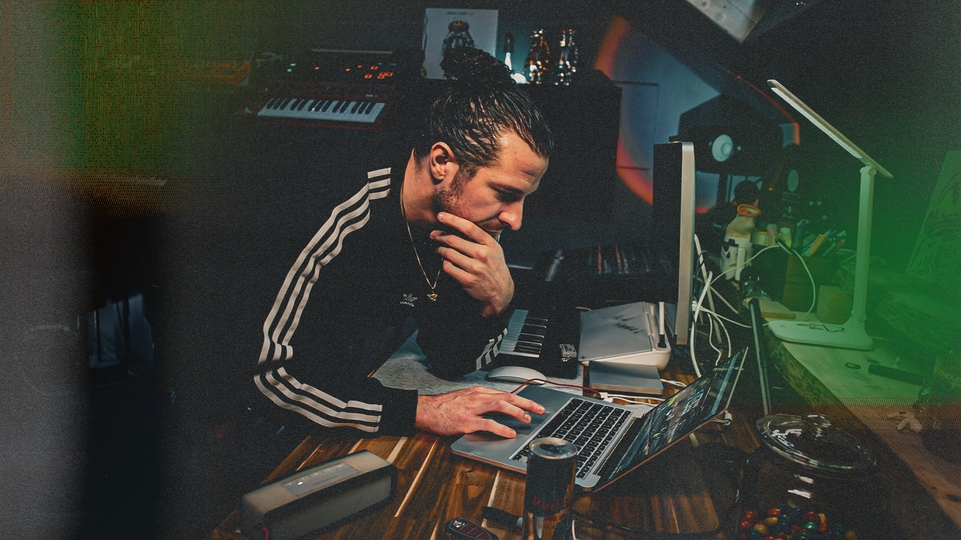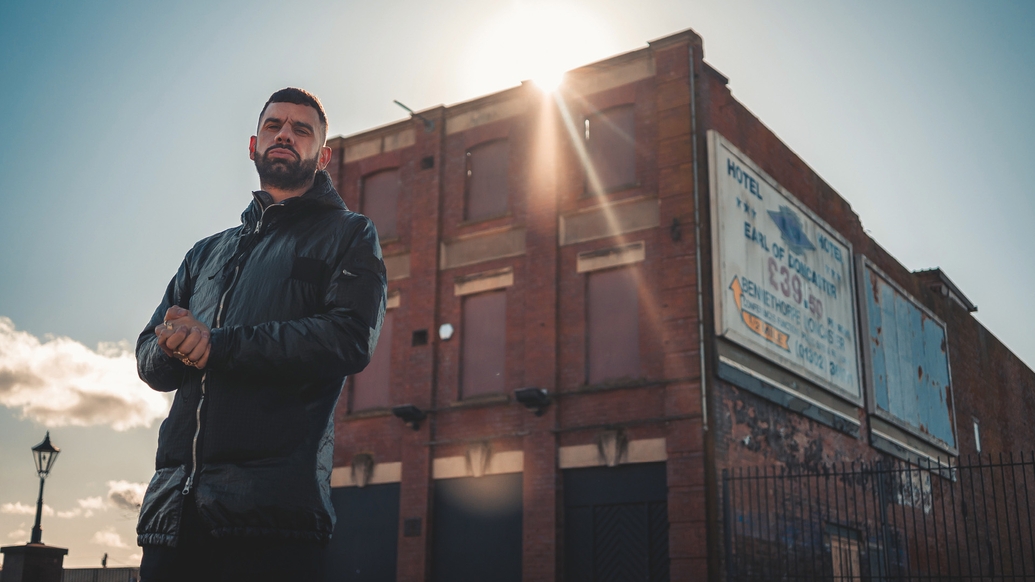
At home with: Mella Dee
The DJ/producer takes us on a tour of his hometown and nearby Doncaster, and tells DJ Mag how they’ve influenced his music and work ethic from the start
Ryan Aitchison is stood outside his childhood home in Woodlands, a former “pit village” three miles north of Doncaster, casually posing for pictures. The house, part of a sprawling estate of identikit semi-detatched properties in that oh-so-familiar mid 20th century style, is unremarkable in every way, though his memories of life in Woodlands are anything but.
“I remember so many scraps in the street when I was growing up here,” he says in a thick South Yorkshire accent. “Neighbours would come out to have a war against each other, family against family.”
That’s not a sentence that could be uttered by many of Britain’s most popular DJs and producers, but then Aitchison is not your average top-tier artist. He may now be flying high as Mella Dee, big room rave hero and festival headliner, but the South Yorkshireman remains immensely proud of his working-class roots. In fact, he’s brought DJ Mag here to talk about them, and his musical journey so far, in the hope that it might inspire others from similar backgrounds to try and follow in his footsteps.
“I know that people look at me with my Nike Air Max and tracky bottoms and think, ‘He’s not that different from me’,” he says. “One of the reasons that I shout about Donny [Doncaster] so much is that I want young people from here, who are like me and feel like they don’t know what to do, to have a crack at something. I’ve done it, so they can too.”
He glances up and down the road, taking in the sights and sounds of the street he once called home. “What I’m saying is that if you have an inkling that you might enjoy something, have a go — fucking do it and don’t worry about people who say you can’t do it and all that shit. Find a way! Get your head down, get on with it and get against it. Anyone in a working-class town or village should think the same thing.”
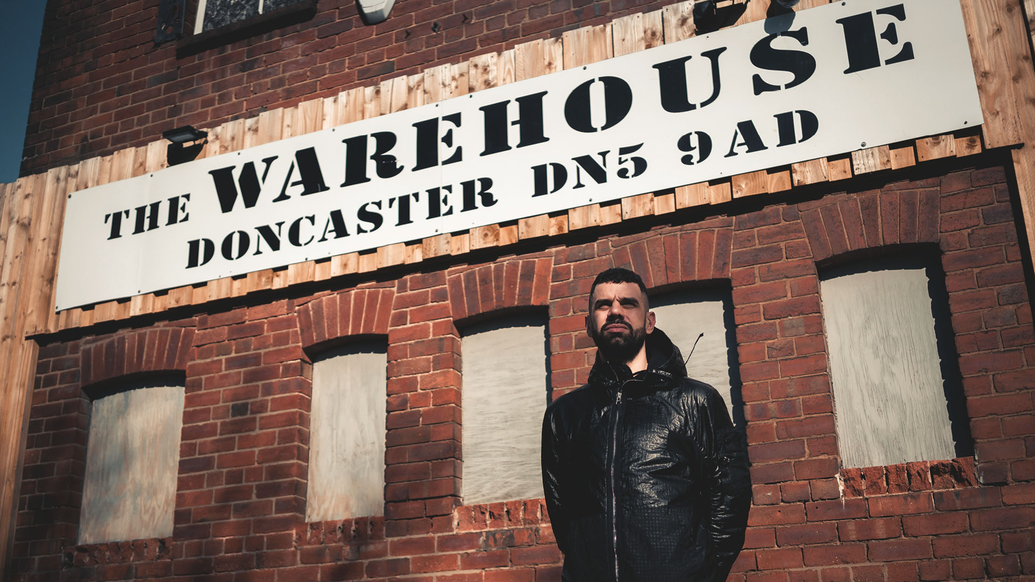

“I know that people look at me with my Nike Air Max and tracky bottoms and think, ‘He’s not that different from me’. One of the reasons that I shout about Donny [Doncaster] so much is that I want young people from here, who are like me and feel like they don’t know what to do, to have a crack at something. I’ve done it, so they can too”
What Aitchison says matters, because club culture in the UK is becoming as dominated by those from middle-class and privileged backgrounds as any other branch of the arts. According to a joint 2018 study by Create, Arts Emergency and the universities of Edinburgh and Sheffield, fewer than 20 per cent of people working in the music industry have working-class roots. While that’s nowhere near as bad as the acting profession, where just 12 per cent were state educated, it’s still an alarming figure given our scene’s roots within marginalised communities.
As Jeremy Deller pointed out in his 2019 film Everybody In The Place, British dance music’s first great boom of the late 1980s and early ’90s was built on working-class foundations. Ryan Aitchison was still a young child during this period, but clearly remembers dance music being a huge part of working-class life in this part of South Yorkshire. “My dad always played dance music of some sort,” he says as we begin the short walk to the “top shops”, a parade of takeaways, newsagents, pawnbrokers, and bakers that has served the estate’s residents for decades. “He used to go to Northern soul dances and hardcore raves quite regularly when I was little. I didn’t grow up with a family who was into rock music — it was always Motown, reggae, Northern soul and hardcore.”
The Aitchisons were in many ways fairly typical. During the early to mid-’90s, rave culture blossomed in this part of the world, and he says it wasn’t uncommon to hear banging tunes rattling the windows of passing cars and surging from the open windows of nearby houses. “A lot of people in the village listened to hardcore,” he says, while eyeing up a gold chain hanging in the window of the local jewellers.
“My older sister used to have tapes full of happy hardcore classics, and when I was seven or eight I used to steal these tapes off her. I used to fall asleep listening to happy hardcore.” Such was the strength of young Aitchison’s love for dance music (and dancing in his bedroom for that matter), it wasn’t uncommon for his parents to buy him ‘Bonkers’ mix CDs as birthday or Christmas presents. By the time he was “11 or 12”, he was already a frequent visitor to Rhythm Nation in Doncaster, a record shop that sold just as many rave tape-packs as it did 12-inch singles.
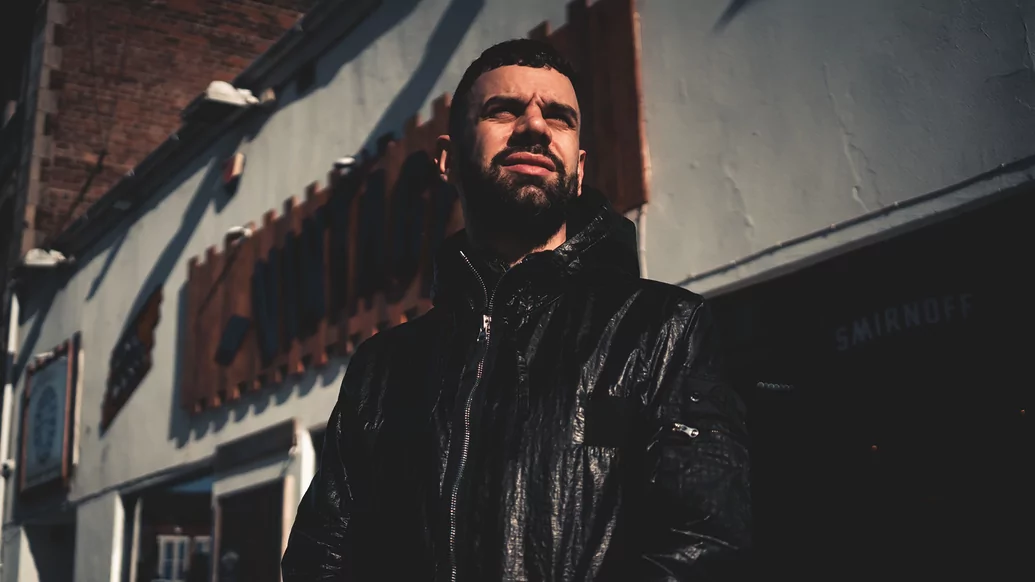
“They had this box of random tapes that was separate from the tape-packs, like a bargain bin I suppose,” he says. “They were a pound each. Some of them were mixes by people like Hixxy and Dougal, though I didn’t really bother looking at what was on them — I’d just grab a couple and buy them with my pocket money. Me and my mate would walk up to the counter with them dressed in our white jeans and Ben Sherman shirts like a couple of right little chavvies.”
He laughs at the memory, before suggesting that we get in the car and head towards Doncaster; there are a couple of places he wants to visit en route, starting with his old comprehensive school, Ridgewood. Although he named his rock-solid new double-vinyl EP in honour of it, he readily admits that he was more interested in schooling himself on dance music than he was on learning maths or science.
“I disconnected myself from everyone I was at school with as soon as I left,” he says. “I always felt like a bit of an outcast because I was the weird kid who was into skateboarding and music. Since being a kid, I’ve always been on my own little wavelength.”
While he does have some fond memories of Ridgewood’s on-site youth club — “I used to put on a ‘Bonkers’ CD and dance around to it” — Aitchison spent much more time as a teenager hanging out at the local skate park. Because of that, he’s brought DJ Mag to see it. “It’s pretty shit really, but it was important to me at the time,” he laughs, while gesturing towards the graffiti-covered concrete berms and ramps. “Being into skateboarding introduced me to all sorts of people, and got me listening to loads of different music.”
“The work ethic I have comes from actual working — manual labour. I’ve worked since I was 15 years old, so I know what it takes to graft to make your money. I just do that with music: I graft and it’s something I love to do.”
He sits down atop one side of the shallow concrete halfpipe, roughly in the same place he used to perch all those years ago. “The thing is, when I was that age all I wanted to do was leave Donny,” he says. “I’ve never been a standard Donny person. I felt lost, and dance music really helped me. It helps you meet people from a lot of different backgrounds, just like skateboarding.”
He decided against staying on to study A-levels and instead started working with his dad fitting shutters — hard graft that earned him enough to spend his weekends in Sheffield and Leeds buying records or going out clubbing. “There’s no fun in standing around for 12 hours in the wind and rain lumping around heavy bits of metal,” he admits. “Compared to that, DJing and producing is a piece of piss.”
Those who follow Aitchison on social media will tell you how hard he works. When he’s not on the road DJing, he spends the majority of his time in the studio cooking up new tracks or offering up tips on arrangement and mixing on Twitter or Instagram. In comparison to many producers, he’s prolific — during a recent month-long break from touring he finished off no less than 39 tracks — but that’s only because he’s hard-wired to knuckle down and work hard to survive.
“The work ethic I have comes from actual working — manual labour,” he says. “I’ve worked since I was 15 years old, so I know what it takes to graft to make your money. I just do that with music: I graft and it’s something I love to do.”
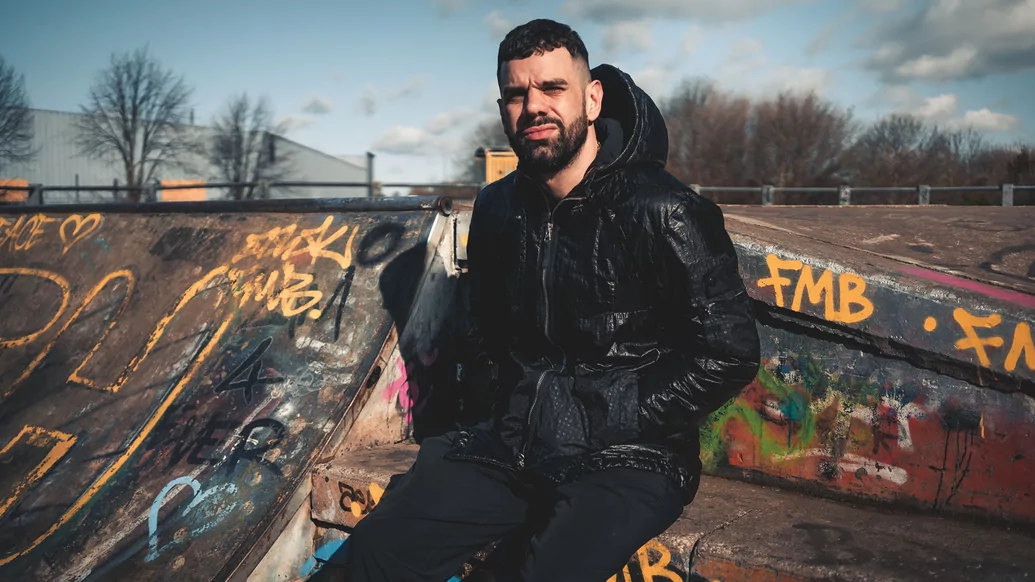

For years, Aitchison spent his days working a variety of jobs in order to feed his growing obsession with dance music. Once he started DJing aged “18 or 19”, he needed to make enough out of his endeavours to acquire house, garage, drum & bass, dubstep and bassline records, either from HMV and Rhythm Nation in Doncaster, or the better-stocked specialist dance stores in nearby Sheffield or Leeds. Both of those cities played a key role in shaping his musical outlook, primarily through his experiences as a clubber rather than a DJ. “Donny-wise, there were a couple of places I used to go to — little bars and clubs that had more of a party culture, but if I really wanted to go clubbing I’d go to the West Indian Centre in Leeds or to Niche in Sheffield.”
Leeds was also the location of his most significant early DJ residency: a weekly show on pirate radio station Frequency. “I used to drive over every Friday night and do the show between two and four in the morning,” he remembers. “I don’t know if anyone was listening, but I used to enjoy doing it. They had those old CD decks with tiny jogwheels, and I learned to mix CDs using those while I was on air. I thought the show was the biggest thing ever, which I guess it was for me at the time.”
The sounds associated with Sheffield and Leeds’ very particular take on dance music — think metallic percussion sounds, clanking machine drums and weighty soundsystem-style sub bass — can be heard throughout the now-extensive Mella Dee discography. For example, the heavy bleeps and clonks of ‘Estate’ and ‘Feel It Out’ doff a cap to Yorkshire’s suitably clanging and industrial take on techno, while ‘Ruff Cut’, ‘Don’t Be Nesh’ and ‘Sidney Street’ variously twist bassline, dubstep and garage into warped, hard-edged new forms. Even his more breakbeat-driven tracks such as ‘GT Turbo’, ‘Trellick’ and ‘Deep Soul’ contain garage-style basslines and Steel City clangs, as well as drums that recall a childhood spent dancing to hardcore in his Woodlands bedroom.
Yet however important Sheffield and Leeds were in shaping Aitchison’s musical make-up, it was of course Doncaster where he took his first steps into music production. He did this alongside two skater friends in a flat above the town centre club they all worked in, the now-defunct Boiler Rooms.
“We just started messing around with a cracked copy of Reason. At the start of it I was more the ideas guy,” he reveals. “The two of them were probably making drum & bass together and I’d be saying, ‘Let’s make some garage, let’s make some bassline, let’s make some house!’ At the time I didn’t have any focus on being a DJ or a producer — we were just messing around, and music was just something I did in my spare time.”
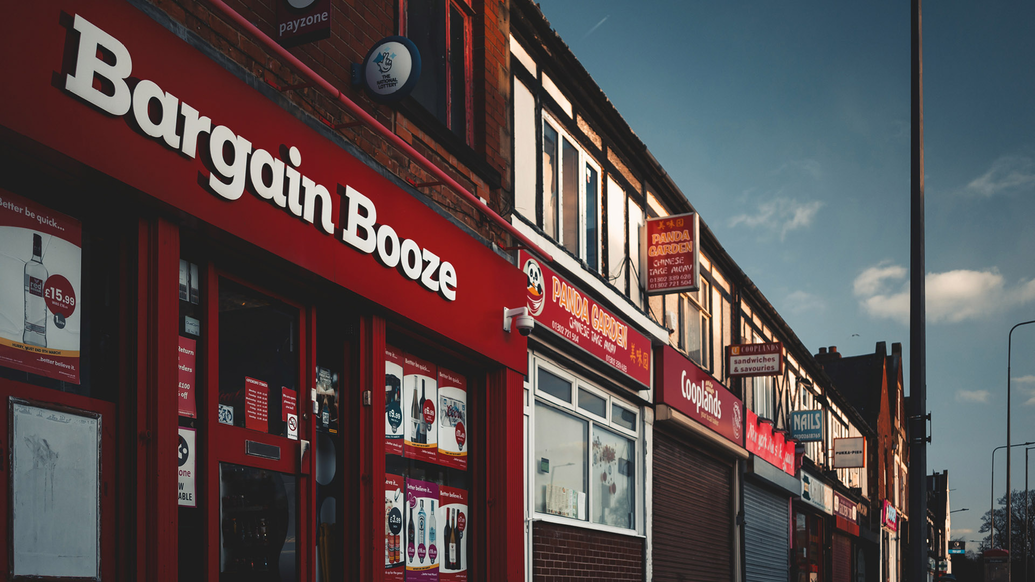
The three of them enjoyed some moderate underground success as Mista Men between 2010 and 2012, but it soon became clear that Aitchison would be happier as a solo DJ and producer. “I struggle with anything that involves being in a team or having a shared mentality,” he admits. “I’ve always been more interested in doing whatever’s on my mind. I’m driven by my own feelings and determination.”
From the start, there were plenty who doubted that he could make it on his own, particularly when he decided to start building a studio, following a career-defining move to London in 2013.
“There was this guy who’d been in a fairly well-known DJ duo for a while who said to me, ‘I don’t think you have the mental capacity to get a studio’,” he sighs. “It felt like he was telling me I wasn’t intelligent enough to build and use a studio. Things like that just spur me on. What’s he doing now? Fuck all!”
It would be fair to say that Aitchison has now made that particular critic look rather foolish. Since the launch of his Warehouse Music label in 2017 and the subsequent release of ‘Techno Disco Tool’ — one of a string of heavyweight, disco-sampling workouts he released that year — he’s been on a white-knuckle ride right to the very top.
“I just kind of rolled with it, and it’s still snowballing,” he says of the success of his biggest record to date and the profile it brought him. “There are DJ requests coming in from new countries all the time. I never expected this level of success.”
Fittingly, Aitchison has chosen to end our whistle-stop tour of his hometown at the legendary local venue that he’s done more than anyone to promote in recent years: the Doncaster Warehouse. While he was never a frequent visitor as a young raver — “most of the nights were hard house and trance, which isn’t my thing” — he always dreamed of being able to play there all-night long to an eager crowd of local clubbers. Last year, he finally achieved that, an experience that left a lasting impression.
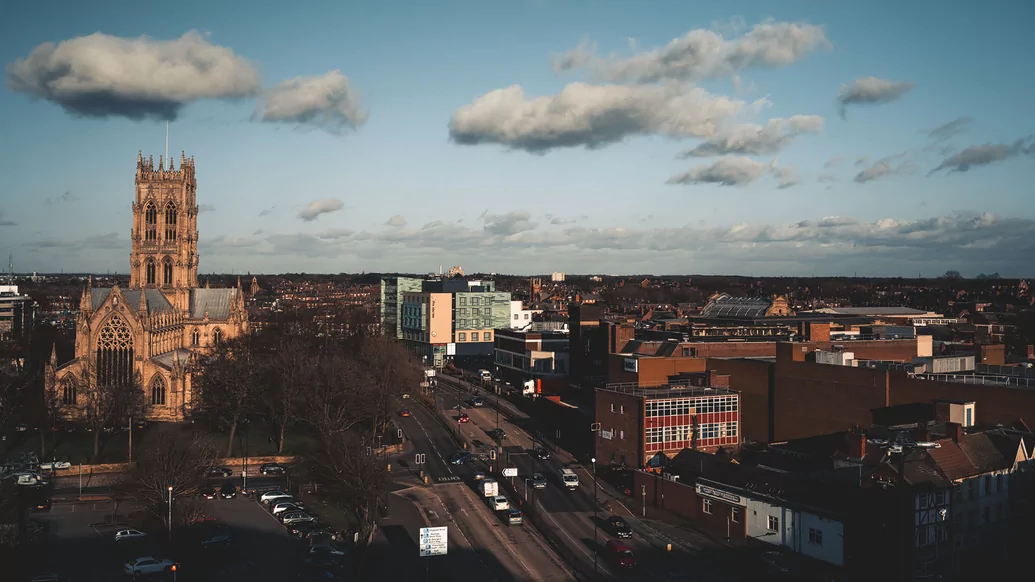

“I don’t want to say it was a homecoming because that’s cheesy, but it was special to do it because I love that club and wanted to get people in there to have a good time,” he gushes, while stood outside the venue’s shuttered backstreet entrance. “I had good friends there from Donny who were smiling and having the best time. It felt good to give the town the sort of night it doesn’t get all the time. To do that and play all night was an amazing feeling.”
He says there’s unfinished business there — in future, he’d like to get Boiler Room to do a live stream from the club (“Come to Donny and do a rave, it will be something totally different!”) — but for now his focus remains on studio work, and a string of suitably driving, rave-igniting EPs. Naturally, all of the latter include track titles that in some way reference his beloved hometown.
“I was laughing when I was in Panoramabar the other day, because Gerd Janson played this track I made called ‘Rockport XCS’,” he chuckles. “I mean, I’m in the coolest club in the world and the track of mine being played is named after a boot that scallies in Donny wear. I represent stuff like that and the town because that’s my roots.”
To prove the point, he removes his coat and rolls up the left sleeve of his sweater to show us one of his tattoos. It’s a stylised shield featuring a castle with water flowing beneath it. “That’s the Doncaster Council logo,” he says enthusiastically. “That’s the River Don and that’s Conisburgh Castle. The Donny motto is, ‘Be steadfast’, so I think that will be my next tattoo. I’m Donny through and through!”
